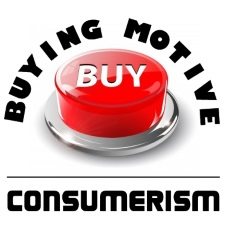Patronage Buying Motives of Consumers | Emotional & Rational
Sometimes, customers patronize a store or shop, driven either by their emotional or rational choice. There are certain factors which are responsible for arriving at such a choice.

Table of Contents
Emotional Patronage Buying Motives of Consumers
Emotional patronage motives depend upon the mentality of consumers. Customers become attached to a particular dealer or store. Emotionally, the buyer develops a sort of ‘soft corner‘ towards a particular shop. While doing so, the customer does not apply his intelligence and judgement in buying goods. Rather, he is carried away by his emotions. The following could be the reasons for such a behavior.
1. Appearance
Sometimes, customers are attracted to a particular shop because of its appearance. A well decorated, colorfully lit, clean and well furnished store with all modern amenities tends to attract the attention of customers.
2. Recommendations
Customers also visit a shop on the recommendations of their friends and relatives. Usually, these friends and relatives could be the satisfied customers of that particular shop. As a result, they recommend the store to others.
3. Imitation
Mostly, customers are motivated to follow others, since it often seems easier. Customers enter a shop imitating others. This motive is stronger in case of ladies. However, this motive is a short-lived one and does not remain long.
4. Prestige
There are a number of customers who possess immense wealth. For them the sole buying motive is the prestige and superiority. The motive of prestige is so strong in them that they purchase articles which they may not need at all. Sometimes, they also buy the very best and most expensive product of the market. In order to maintain their dignity, they purchase goods even at a higher price. These people continue to patronize a shop or a dealer as a matter of prestige.
5. Habit
Consumer loyalty is developed out of consumer habit. Once a customer is emotionally attracted to a particular store, he continues to patronize the same. It is so with grocers, tailors, beauty parlours, restaurants, etc. It becomes a habit to go to a particular outlet almost mechanically. The customer sells himself to that outlet automatically.
Rational Patronage Buying Motives of Consumers
A large number of buyers, by their rational choice prefer to buy from a particular shop or store. They apply their intelligence and judgement before patronizing a particular shop. They always calculate the benefits of patronizing a shop. As can be seen from the following examples, rational patronage motive makes the customer selective, judging from various view points.
1. Credit Facilities
Some rational buyers try to patronize a particular shop or dealer because of credit facilities offered by the dealer. In fact, almost all the sellers offer credit to attract customers. Sometimes, luxury goods are offered in installment basis by stores. Thus, credit facilities, installment facilities offered by dealers play an important role in attracting customers to a particular shop. As a result, customers patronize the shop in order to avail such facilities.
2. Location (Proximity)
Generally, people prefer to patronize a particular dealer or shop because it is closer to their home. Perhaps. they are familiar there and the shop keeper ensures prompt service. In fact, modern business depends largely on the services offered by the seller and this is certainly one among them. Customer is the king and he should be treated accordingly. If due respect is shown and prompt treatment given and if they are presented with large variety of articles, customers develop a sort of liking to that shop.
3. Services Offered
A majority of customers prefer buying articles at a shop offering maximum number of services. Many stores provide services like cash discount, guarantee, free home delivery, repair service at a lower cost, exchange goods in case of defect, telephone order taking, etc.
4. Wide Choice
Now-a-days people want to buy their requirements at a shop offering large varieties of products. The aim is to get maximum satisfaction from the goods purchased. Varieties of goods enable the customers to pick up the suitable goods.
5. Respectable treatment
Today’s customer attaches much significance to his self-respect and wishes to be treated very well. Courtesy and modesty of the sales-staff and the shop-owner make the customers feel at home and this factor makes them to patronize the shop repeatedly.
A word of caution must be given about these classifications. There cannot be a water-tight compartmentalization, for a buying motive can be both ‘rational and emotional‘ depending on the situation. For instance, ‘appearance of store‘ can be ‘rational‘ not necessarily ‘emotional‘ because, a good store is known by its appearance among other things. Again, ‘proximity‘ or ‘convenience‘ can be ‘emotional‘ than ‘rational‘. Thus, much depends on how one looks at them.
Related Posts
-
 Socialization of family members | Consumer Socialization
No Comments | Mar 25, 2016
Socialization of family members | Consumer Socialization
No Comments | Mar 25, 2016 -
 Classification of Consumers on the basis of Age & Sex | How to deal with them?
No Comments | Aug 7, 2017
Classification of Consumers on the basis of Age & Sex | How to deal with them?
No Comments | Aug 7, 2017 -
 Consumer and Consumer Behavior | Scope | Ways to find
No Comments | Nov 25, 2016
Consumer and Consumer Behavior | Scope | Ways to find
No Comments | Nov 25, 2016 -
 8 Rational Product Buying Motives of Consumers
No Comments | Jan 21, 2017
8 Rational Product Buying Motives of Consumers
No Comments | Jan 21, 2017
